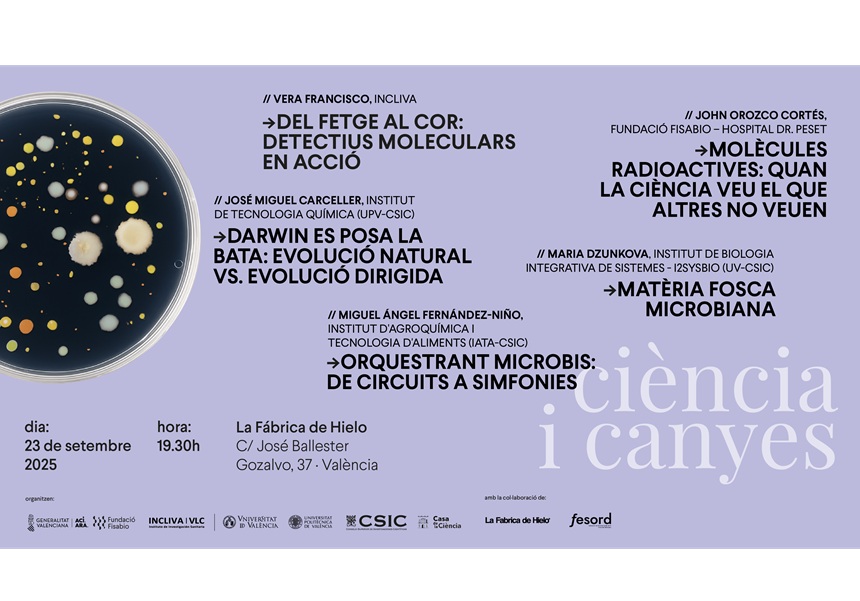A study showcases the value of videogames and art for communicating about climate change and science knowledge transfer
- Marketing and Communication Service
- Remei Castello Belda
- July 30th, 2025

The conclusions of the project by Universitat de Valècia and Jaume I University have been published in Revista Mediterránea de Comunicación and point out videogames codesigned by artists, scientists and students help fight against fake news and disinformation on climate change and promotes green digital translation.
A study by Universitat de València and Jaume I University reveals the value of videgogames, art and co-creation when designing innovative models of communication for climat change and scientific knowledge transfer from public institutions to citizens. Conclusions were published on Revista Mediterránea de Comunicación.
The analyses of the 18 Serious Games codesigned by artists, scientists and student within the line Good Game of Planeta Debug Project demonstrates 'the high potential of videogames as means of mediatic education and promotion of citizen participation in sustainability using gamification of scientific research to connect with young public and helop their positive developmente as well as becoming the catalysers of social change within the current digital and ecological transition', states UV Journalism professor and project c-author Maria Josep Picó Garcés along with UJI Audiovisual Communication professor Emilio Sáez Soro.
'Serious Games' to fight against fae news and climate disinformation
The Good Game games come from co-creative processes and address a variety of aspects and challenges about climate change thanks to this inerdiscipline collaboration and global vision on temperature rising in research, art and new AI-induces techonolgy scene. 'It is interesting how this bridge-crossing perspective combines with the added value of its integration within the kowledge and research frames while providing ludic narratives to the climae change issue. They also fight fake news and disinformation during the polarisation era we are facing' explained Picó.
The research at Living Lab Planeta Debug started in the UJI —funded by the Daniel i Nina Carasso Foundation programme of Civic Art— analuses how videogames speak complex scientific concepts in a comprehensible and attractive manner. Cocreated narratives inspired in real research lines about sustainability use ludic metaphors to explore future scenarios of climate crisis and possible solutions.
Ludic metaphors to play with scientific concepts
'Ludic metaphors and narrative can translate complex scientific concepts into compehensible and attractive experiences for the public. About 55 % of the Serious Games narrative address a pessimistic perspective of future climate, even if the approach was constructive and positive' pointed out Emilio Sáez Soro.
The Good Game games cocreation experience and the diverse format of dissemination and dialogue with the public make it clear that they hold 'the power to serve as knowledge transmitters on climate change and sustainability within the purpose of communication outlets and social media', stated Sáez Soro.
'Serious Games possess positive features for socialisation and promote active citizenship in front of climate change, using the attraction of games and personal involvement to address this planetary challenge with huge social, environmental en economic impact in contrast with passive consumption of the audience regarding conventional informative outlets overridden by preferred dynamics in digital environments like interaction' according to professor Picó.
Pessimistic to hopeful narrative and constructive vision
Twelve of the analysed games revolve around challenges on construction and reconstruction while only six are destruction-oriented. This diversity in the narrative tackles on visions from the most raw and pessimitic to the most hopeful, with solutions to solve the crisis and scenarios in which the main characters act with ethics and generosity, including situations where corruption generats a great deal of consequences.
Within the main concepts in the games story, positive ideas focusing on the climate change challenges like regeneration, hualing, environment, robots, energy and efficiency are the main point, although violent elements are also present. On a second level, the hiighlight falls on construction concepts like repair, recycling, balance, ligt, water, defense, healing and the ecosystem.
Ludic approach of the SDGs for a green and digital transition
Co-creative methodology of Planeta Debug provides a successful experience for a ludic approach of knowledge, especially promoting the knowledge on climate challenges and the Sustainable Development Goals (SDGs) of the Agenda 2030 by the United Nations. It also contributes to the alignment of the researcher community withe new perspective of Responsible Research and Innovation (RRI).
Reference:
Picó-Garcés, M.-J., & Sáez-Soro, E. (2025). Videojuegos, arte y cocreación para la comunicación climática: una experiencia de innovación social. Revista Mediterránea De Comunicación, 16(2), e29316. https://doi.org/10.14198/MEDCOM.29316
















